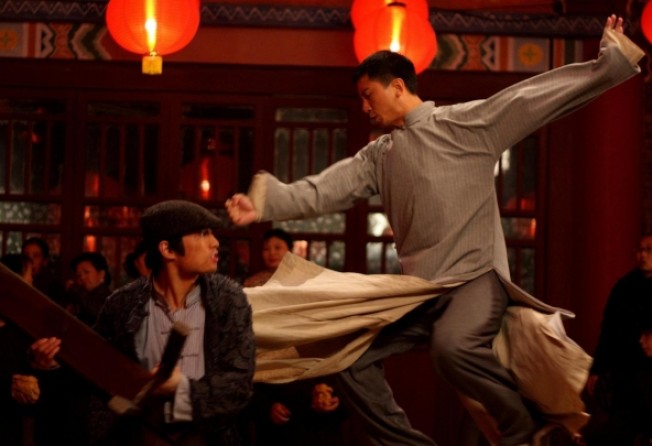Postcard: New York

Last year's screening of Peter Chan Ho-sun's 2011 martial arts action film Dragon (known as Wu Xia in Hong Kong) was a big hit at the New York Asian Film Festival (NYAFF), an annual event co-organised by Subway Cinema, the Film Society of Lincoln Centre and the Japan Society.
That's no surprise to festival organiser Goran Topalovic: although the NYAFF screens a diverse array of commercial and genre films from across Asia, martial arts films from Hong Kong are still the most consistently popular works, he says.
"There is always a lot of interest when we show a martial arts film," he says just before the start, on Friday, of the 12th edition of the festival founded by a New York-based collective of Asian film fans. "Whether it's a modern action film, a well-regarded classic, a Shaw Brothers movie, or a film from the 1990s, we are guaranteed an audience. In most people's minds here, Hong Kong cinema is martial arts cinema. We have never seen a dip in interest - we can always count on a martial arts film doing well at the box office, and getting a lot of attention from the audience and the press."
This year's NYAFF, which runs until July 15, is screening two Ip Man films: 2010's The Legend is Born: Ip Man and Ip Man: The Final Fight (2013), both directed by Herman Yau Lai-to, who will be attending with screenwriter Erica Li Man.
This follows the 13-film retrospective last week celebrating Jackie Chan's martial arts prowess, "The Jackie Chan Experience". But plans to screen Wong Kar-wai's The Grandmaster fell through because the US version of the film was not ready.
Also in the festival programme is Bruce Lee's Enter the Dragon, co-produced by Golden Harvest and Warner Brothers in 1973, and directed by Robert Clouse. Lee died the year the film was released, but his star still shines bright in the US. "Bruce Lee is still an icon here, and our audience is well aware of the role that he played in popularising kung fu films here and in Hong Kong," Topalovic says.
He says Lee's 1970s films, and other Hong Kong movies from that decade, had a cultural effect on young working-class men (and women) in America's urban centres, especially African Americans. The kung fu craze influenced blaxploitation movies and, later, hip hop culture. The festival is holding an exhibition of post-graffiti art called "Kung Fu Wild Style" to demonstrate the interaction between the two cultures.
The artists - Fab 5 Freddy, a Brookyln-born graffiti art pioneer who was one of the first to paint subway cars, and MC Yan of Hong Kong rap group LMF - will discuss the influence of martial arts films on hip hop culture before the screening of Enter the Dragon.
"Martial arts cinema in the 1970s was a populist cinema, a working-class cinema," Topalovic says. "The hero always came from the people and fought against the powerful ones. It was easy for young African Americans, who were growing up in a similar environment, to be inspired by these martial arts heroes, and make them their own. They could identify with them more easily than the white heroes Hollywood was producing."
Two omnibus Hong Kong films - the Fruit Chan Kuo, Lee Chi-ngai and Simon Yam Tat-wah-helmed horror film Tales From the Dark Part One, and Henri Wong Chi-hang, Chong Siu-wing and Andy Lo Yiu-fai's comedic Hardcore Comedy - will receive their world premieres in New York. The NYAFF is also presenting Andrew Lau Wai-keung's 1996 triad dramas, Young and Dangerous parts 1 and 2.
Although US audiences do enjoy glossy Hong Kong-mainland co-productions, like Hongkongers they tend to prefer films that have a strong local angle, Topalovic says. "Our fans grew up with Hong Kong films and have been following them for many years. They have a preference for a more Hong Kong-style of filmmaking.
"They do like the bigger pan-Chinese films, especially as Hong Kong directors and actors are often involved in them. But although those films are enjoyable, nothing about them really sticks in the memory. No one here has the same kind of passion for them as they do for local-style Hong Kong movies."